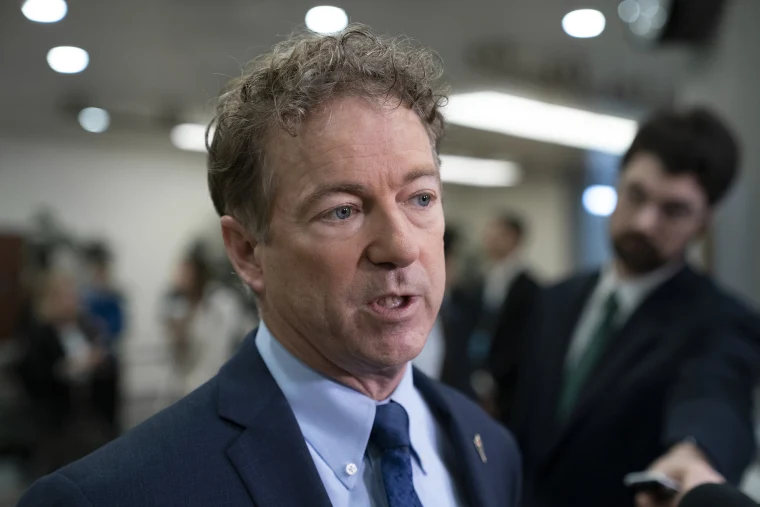Senator Rand Paul, the Kentucky Republican known for his libertarian views and outspoken criticism of federal overreach, will take on the chairmanship of the Senate Homeland Security and Governmental Affairs Committee starting in January, reports said on Friday. The announcement comes as the GOP prepares to leverage its majority in the chamber, positioning Paul to oversee a broad range of issues, from national security to government accountability.
The Homeland Security Committee is one of the Senate’s most influential, responsible for overseeing the Department of Homeland Security, cybersecurity policies, and disaster response. As chairman, Paul will have a significant platform to shape legislative priorities and scrutinize the Biden administration’s handling of domestic security matters. “I chose to chair this committee over another because I believe that, for the health of our republic, Congress must stand up once again for its constitutional role,” Paul told The New York Post. “This committee’s mission of oversight and investigations is critical to Congress reasserting itself.”
He is also determined to get to the bottom of the origins of the COVID-19 pandemic. “I think we’re on the cusp of, really, the beginning of uncovering what happened with COVID,” Paul added. “We are going to, hopefully, have a friendlier administration, and we’re hoping that there will be a friendly person at [the Department of Health and Human Services], and we’re hoping they’ll be friendly at [the National Institutes of Health].” He added: “The biggest item of the COVID coverup is that for years, we’ve known there is this dangerous research. The idea that the government would pre-emptively be telling people not to publish things, to me, is horrendous.”
Paul’s outspoken views on public health, especially during the COVID-19 pandemic, have garnered national attention. A staunch critic of federal mandates and restrictions, Paul frequently clashed with top health officials, including Dr. Anthony Fauci, over policies such as mask requirements and vaccine mandates. Their exchanges during Senate hearings were often contentious, with Paul questioning Fauci’s statements regarding the research conducted at the Wuhan lab.
Paul’s skepticism of government interventions resonated with segments of the public frustrated by pandemic-era restrictions, but it also drew criticism from those who accused him of undermining public health efforts. In June 2024, as the Ranking Member of the Senate Homeland Security and Governmental Affairs Committee, Paul took part in a bipartisan hearing titled “Origins of COVID-19: An Examination of Available Evidence,” where he presented arguments supporting the lab leak theory.
Paul is urging Trump to reinstate his “Remain in Mexico” policy, which required asylum seekers to await the results of their asylum cases on the southern side of the Rio Grande. “Most people don’t understand, myself included, why, if you’re illegally coming across a river in a boat or walking, you’re not just deposited back on the other side?” he explained to The Post. “You’re breaking the law.”
Paul’s approach to governance has frequently crossed traditional party lines. He has disagreed with members of his own party over defense spending and foreign policy, advocating for a more restrained federal budget and non-interventionist strategies overseas. “We’re just scratching at the tip of the iceberg,” he concluded. “Most of the [documents] we’ve been trying to get so far are non-classified. You can imagine what may be happening in our government or other governments.”



